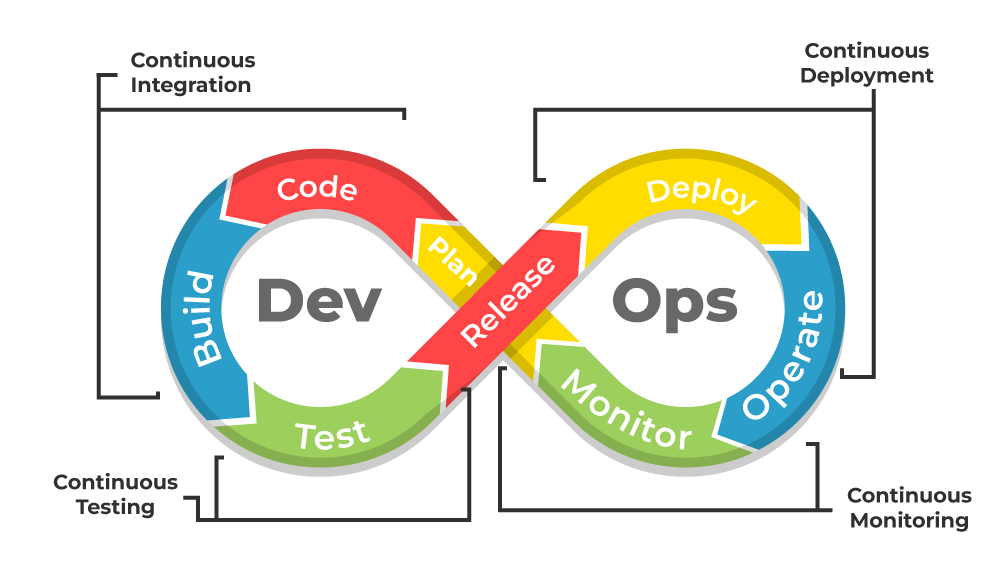
DevOps, a portmanteau of “development” and “operations,” is a set of practices that aims to bring together software development and IT operations. It emphasizes collaboration, communication, and integration between these two traditionally separate teams. The primary goal of DevOps is to streamline and automate the process of software delivery, making it more efficient, reliable, and responsive to changes. It’s essentially a combination of development and operations practices aimed at breaking down silos between these traditionally separate teams to create a more integrated and agile software development lifecycle.
Here are some key aspects of DevOps:
- Collaboration: DevOps emphasizes collaboration between developers, testers, operations engineers, and other stakeholders throughout the entire software development lifecycle. This collaboration helps in sharing knowledge, reducing misunderstandings, and enhancing overall efficiency.
- Automation: Automation plays a crucial role in DevOps. By automating various tasks like building, testing, deployment, and monitoring, DevOps teams can achieve faster and more consistent delivery of software. Automation reduces manual errors, increases efficiency, and ensures repeatability.
- Continuous Integration (CI): CI involves frequently integrating code changes into a shared repository. This practice helps identify and address integration issues early in the development process, ensuring that code remains functional and compatible with other parts of the application.
- Continuous Delivery (CD): CD extends CI by automating the deployment process. It ensures that code changes are ready for production at any given time. Automated deployment pipelines facilitate the testing, validation, and release of new features or fixes.
- Infrastructure as Code (IaC): IaC is the practice of managing and provisioning infrastructure using code and automation tools. This allows for consistent and repeatable infrastructure deployment, reducing manual configuration errors.
- Monitoring and Feedback: DevOps promotes continuous monitoring of applications and infrastructure in production. This monitoring provides feedback on system performance, user behavior, and potential issues, enabling quick responses to any anomalies.
Why Do We Need DevOps?
- Faster Time to Market: DevOps practices streamline the development and deployment processes, enabling organizations to release new features and updates more quickly. This speed is essential in today’s competitive software market.
- Improved Collaboration: DevOps breaks down communication barriers between development and operations teams, fostering better collaboration and understanding. This leads to smoother workflows and reduced conflicts.
- Enhanced Quality and Reliability: Automation and continuous testing in DevOps ensure that code is thoroughly tested before deployment, reducing the chances of bugs and errors reaching the production environment.
- Efficiency and Cost Savings: Automation eliminates manual and repetitive tasks, which not only increases efficiency but also reduces human errors. This leads to cost savings in terms of both time and resources.
- Scalability and Flexibility: DevOps practices make it easier to scale applications and infrastructure up or down based on demand. This flexibility is crucial for handling variable workloads.
- Risk Reduction: Continuous monitoring and automated testing help identify issues early in the development process, reducing the risk of major failures in production.
- Better Customer Experience: With faster releases, improved quality, and quicker issue resolution, customers experience more reliable services and quicker access to new features.
Overall, DevOps provides a framework for organizations to adapt and thrive in a rapidly changing technological landscape, delivering software more efficiently and effectively.
What is the Advantage of DevOps?
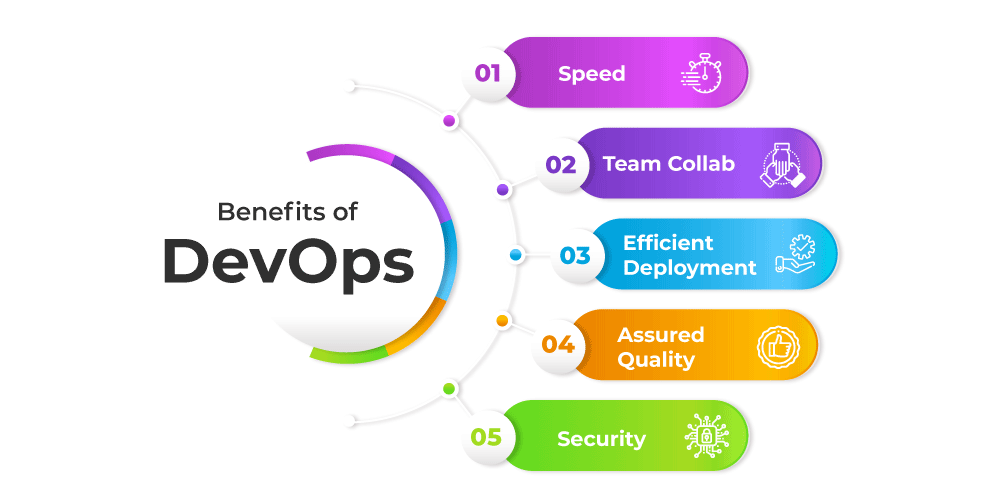
- Faster Time to Market: DevOps enables faster development, testing, and deployment cycles, allowing organizations to release software updates and new features more quickly.
- Improved Collaboration: DevOps fosters better communication and collaboration between development and operations teams, breaking down silos and enhancing efficiency.
- Enhanced Quality: Automation and continuous testing lead to higher quality code with fewer bugs, resulting in more stable and reliable software.
- Reduced Risk: Continuous monitoring and automated testing catch issues early in the development process, reducing the risk of major failures in production.
- Efficiency and Cost Savings: Automation eliminates manual, time-consuming tasks, leading to increased efficiency and reduced operational costs.
- Scalability: DevOps practices make it easier to scale applications and infrastructure up or down based on demand.
- Flexibility: DevOps allows for quick adaptation to changing requirements and market demands.
- Continuous Delivery: DevOps enables the practice of continuous delivery, ensuring that software updates are always ready for deployment.
- Faster Issue Resolution: Monitoring and automated alerts help in identifying and addressing issues more rapidly, minimizing downtime.
- Customer Satisfaction: With faster releases and higher software quality, customers experience better services and more reliable applications.
- Innovation: DevOps encourages experimentation and innovation by providing a stable and automated deployment pipeline.
What is the feature of DevOps?
- Automation: The use of automation tools for building, testing, deploying, and managing infrastructure helps ensure consistency and reduces manual errors.
- Continuous Integration (CI): Frequent integration of code changes into a shared repository, allowing for early detection of integration issues.
- Continuous Delivery (CD): Automating the deployment process to ensure code changes are ready for production at any time.
- Infrastructure as Code (IaC): Managing and provisioning infrastructure using code, allowing for version-controlled, repeatable infrastructure deployments.
- Configuration Management: Consistently managing and configuring software and infrastructure components across different environments.
- Monitoring and Feedback: Continuous monitoring of applications and infrastructure in production, providing feedback on performance and identifying issues.
- Collaboration and Communication: Encouraging collaboration between development, operations, and other teams to enhance communication and understanding.
- Version Control: Managing and tracking changes to code and infrastructure configurations using version control systems.
- Agile and Lean Practices: Embracing agile and lean principles to ensure quick adaptation to changes and efficient workflows.
- Security Integration: Integrating security practices into the development lifecycle to address vulnerabilities early and consistently.
- Culture and Mindset: Creating a culture of collaboration, shared responsibility, and continuous improvement among teams.
- Microservices and Containerization: Utilizing microservices architecture and containerization (e.g., Docker) for more modular and portable applications.
These features and advantages collectively contribute to the successful implementation of DevOps practices, enabling organizations to deliver software more efficiently, reliably, and responsively to market demands.
What is the Top 10 Use cases of DevOps?
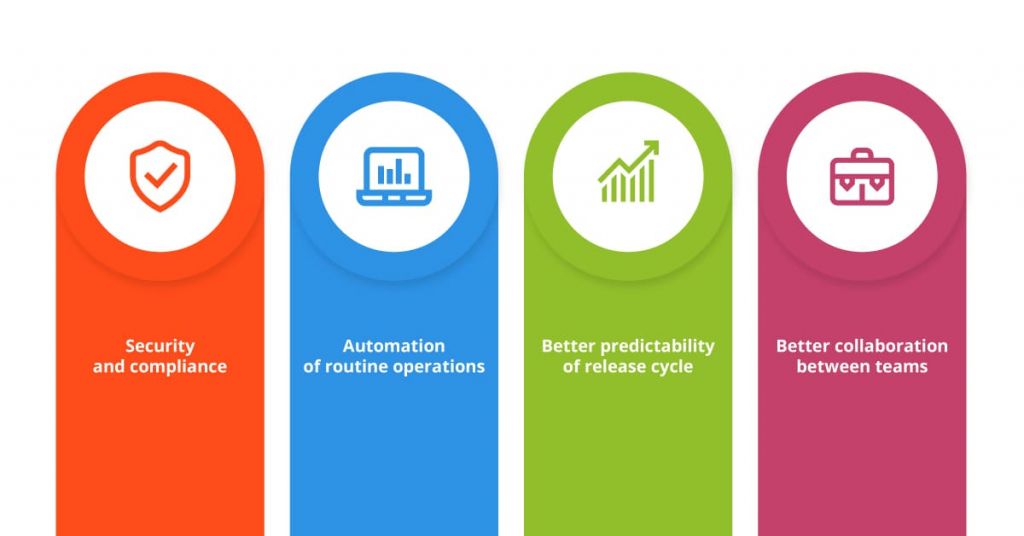
Here are the top 10 use cases of DevOps:
- Continuous Integration and Continuous Delivery (CI/CD): This is the practice of automating the process of building, testing, and deploying code changes. This helps to ensure that code changes are reliable and can be deployed quickly and safely.
- Infrastructure as Code (IaC): This is the practice of managing infrastructure using code. This makes it easier to automate the deployment and management of infrastructure, and to ensure that it is consistent and reliable.
- Microservices architecture: This is an architectural style that breaks down applications into small, independent services. This makes it simpler to deploy, develop, and manage applications.
- Containerization: This is the practice of packaging applications and their dependencies into containers. This makes it easier to deploy and manage applications, and to move them between different environments.
- Monitoring and logging: This is the practice of collecting and analyzing data about applications and infrastructure. This helps to identify and troubleshoot problems, and to improve the performance and reliability of applications.
- Security: This is the practice of protecting applications and infrastructure from unauthorized access, attack, and data loss. DevOps can help to improve security by automating security checks and by integrating security into the development process.
- Compliance: This is the practice of ensuring that applications and infrastructure comply with regulations. DevOps can help to improve compliance by automating compliance checks and by integrating compliance into the development process.
- Agile development: This is a methodology for software development that emphasizes iterative development and continuous improvement. DevOps can help to improve the agility of software development by automating the development process and by breaking down silos between teams.
- Collaboration: This is the practice of working together effectively to achieve a common goal. DevOps can help to improve collaboration by breaking down silos between teams and by automating the communication process.
- Culture change: This is the process of changing the way people think and behave about software development. DevOps can help to change the culture by promoting collaboration, communication, and automation.
How to Implement DevOps?
The following are the steps involved in implementing DevOps:
- Establish a DevOps team: This team should include representatives from all the different teams involved in the software development lifecycle, such as development, operations, testing, and security.
- Define your goals: What do you want to achieve by implementing DevOps? Do you want to improve the speed of development, the reliability of applications, or the security of your infrastructure?
- Identify your pain points: What are the problems that you are trying to solve with DevOps? Are you having problems with slow deployments, unreliable applications, or security breaches?
- Choose the right tools: There are many different tools available to help you implement DevOps. Choose the tools that are right for your needs and that will help you to achieve your goals.
- Create a plan: How are you going to implement DevOps? What steps do you need to take?
- Educate your team: Your team needs to understand the benefits of DevOps and how it will affect their work. Provide them with training and resources so that they can be successful.
- Measure your progress: How will you know if DevOps is working? Set up metrics to track your progress and make sure that you are on track to achieve your goals.
- Iterate and improve: DevOps is an ongoing process. As you learn more, you will need to iterate and improve your approach. Be open to replace and be ready to adapt as needed.
DevOps is a complex and challenging undertaking, but it can be very rewarding. By following these steps, you can successfully implement DevOps and achieve your goals.
How to Get certified in DevOps?
- DevOpsSchool.com
- scmGalaxy.com
- BestDevOps.com
- Cotocus.com
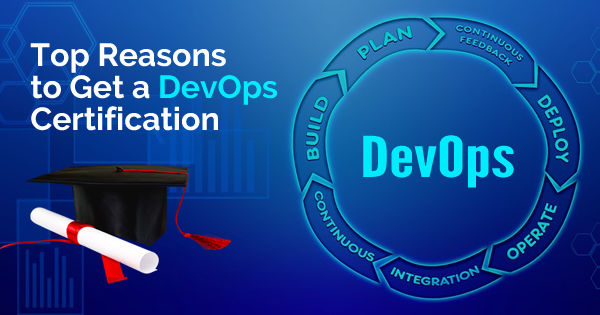
There are many ways to get certified in DevOps. Here are some of the most popular certification programs:
- DevOps Institute Certified Professional in DevOps (DevOps CVP): This is the most comprehensive DevOps certification program available. It covers a wide range of topics, including CI/CD, IaC, microservices, and containerization.
- Certified Kubernetes Administrator (CKA): This certification is designed for those who want to administer Kubernetes clusters. It covers topics such as cluster management, networking, and security.
- Certified Cloud DevOps Engineer (CCDE): This certification is designed for those who want to deploy and manage applications on cloud platforms. It covers topics such as AWS, Azure, and Google Cloud Platform.
- DevOps Engineer – Professional : This certification is designed for those who want to demonstrate their skills and knowledge in DevOps. It encloses topics such as continuous integration and delivery, logging, infrastructure as code, and monitoring.
To get certified in DevOps, you will need to pass an exam. The exams are typically administered by a third-party vendor. The cost of the exams varies depending on the certification program.
In addition to getting certified, you can also learn DevOps by taking online courses, reading books, and attending conferences. There are numerous resources available to aid you learn DevOps.
Here are some of the best resources for learning DevOps:
- DevOps School : This website offers a comprehensive course on DevOps. The course covers all the essential topics, including CI/CD, IaC, and microservices.
- scmGalaxy : This website offers a variety of courses on DevOps. The courses are taught by experienced DevOps professionals.
- BestDevOps : This website offers a hands-on course on DevOps. The course includes exercises and projects that you can work on to learn DevOps.
- Cotocus : This website offers a bootcamp on DevOps. The bootcamp is a intensive course that will teach you everything you need to know about DevOps.
The best way to learn DevOps is to find a resource that fits your learning style and budget. There are many great resources available, so you should be able to find one that works for you.
How to Learn DevOps?
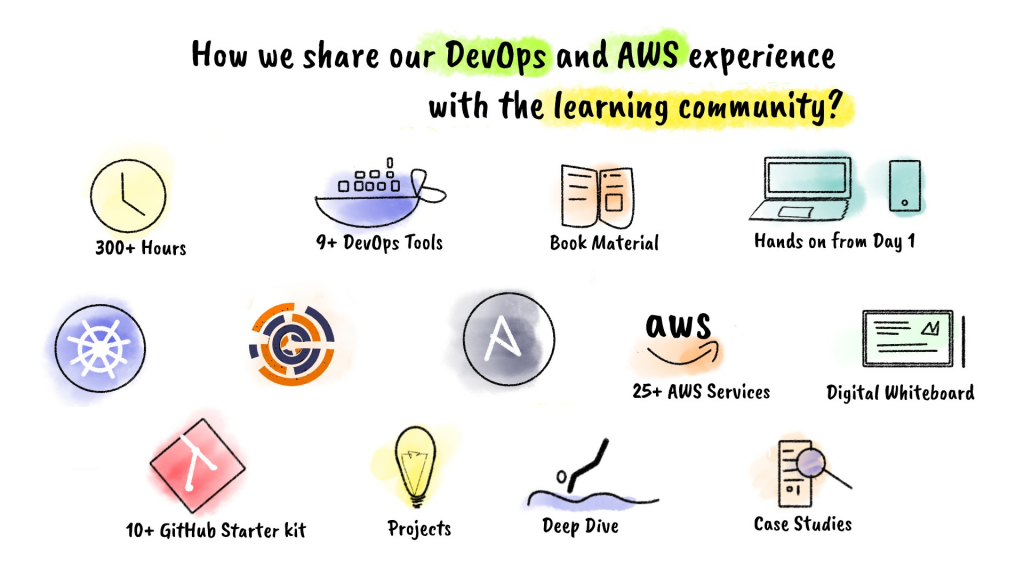
The following are the additional tips for learning DevOps:
- Start with the basics: Before you dive into the more advanced topics, make sure you understand the basics of DevOps. This includes topics such as version control, continuous integration, and continuous delivery.
- Get hands-on experience: The best way to learn DevOps is to get hands-on experience. This means setting up your own DevOps environment and working on projects.
- Build a network: There are many online communities and forums where you can connect with other DevOps professionals. These communities can be an excellent resource for learning and getting aid.
- Stay up-to-date: The DevOps field is constantly evolving, so it’s important to stay up-to-date on the latest trends. Read blogs, attend conferences, and take online courses to keep your skills sharp.
DevOps is a complex and challenging field, but it can be very rewarding. By following these tips, you can learn DevOps and start your career in this exciting field.
Email- contact@devopsschool.com

 Starting: 1st of Every Month
Starting: 1st of Every Month  +91 8409492687
+91 8409492687  Contact@DevOpsSchool.com
Contact@DevOpsSchool.com
